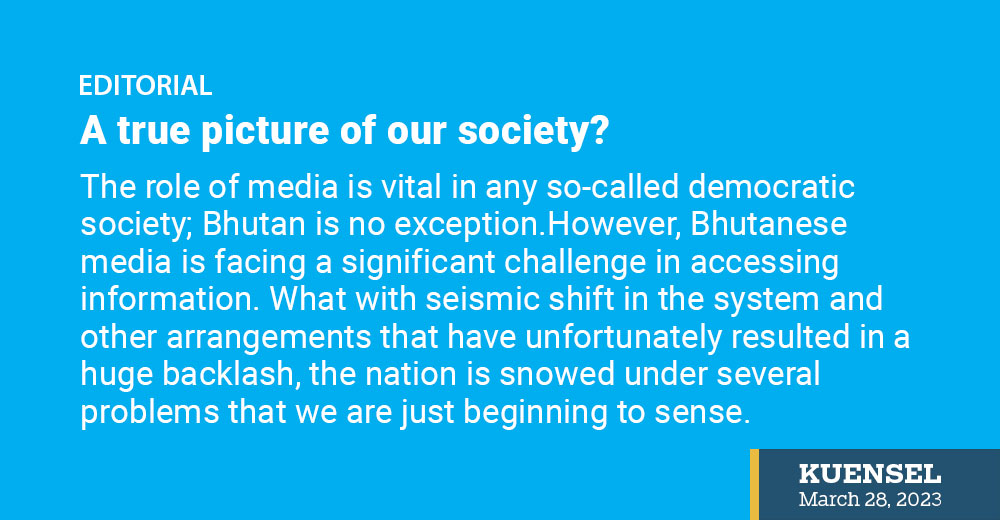The role of media is vital in any so-called democratic society; Bhutan is no exception.
However, Bhutanese media is facing a significant challenge in accessing information. What with seismic shift in the system and other arrangements that have unfortunately resulted in a huge backlash, the nation is snowed under several problems that we are just beginning to sense.
The repercussions of this can be serious if urgent actions are not taken.
Firstly, lack of access to information can result in limited coverage of important issues that affect the Bhutanese people—no government office is willing to talk to the media. This can lead to misinformation and incomplete knowledge about the current happenings in the country. This, in turn, can negatively impact the public’s ability to make informed decisions in their daily lives.
Limited access to information can also restrict the media’s ability to investigate and report on corruption and abuse of power. Transparency and accountability are essential pillars of democracy, and the media play a crucial role in ensuring these values are upheld. Without access to information, the media’s ability to hold those in power accountable is significantly reduced, leaving room for abuse of power and corruption.
When the media is pushed aside, corruption cases increase. There are examples from around the world to refer to. In a democratic society, information belongs to the people; bureaucrats have no right to hold it from the nation and the people.
The lack of open and free access to information also leads to restrictions on freedom of expression, which our Constitution guarantees. Journalists may feel threatened or intimidated and opt to self-censor—this can lead to a significant reduction in the diversity of opinions and perspectives presented in the media.
Without free and open information, the Bhutanese people may be denied the opportunity to express their views freely. Is this the reality, or are we waiting for an even darker time in the life of the nation? Media-murdering spree must end if the nation must see its own true picture in the mirror.
The difficulties that Bhutanese media is facing in accessing information can have grave repercussions for our young and deeply cherished democracy. The media’s ability to inform, investigate and hold those in power accountable is essential for a healthy democratic society.
Therefore, it’s crucial that the government takes appropriate measures to ensure free and transparent access to information. The picture of Bhutanese media today is that they cannot report on the corruption cases in the country, trade deficit and measures, and the country’s long-term vision and plans.
Why is there this fear? Where is it coming from? More importantly, what benefits will we accrue from it all? The one who said “If everything is amplified, we hear nothing” said it right, because when we hear nothing, we cannot even think.


